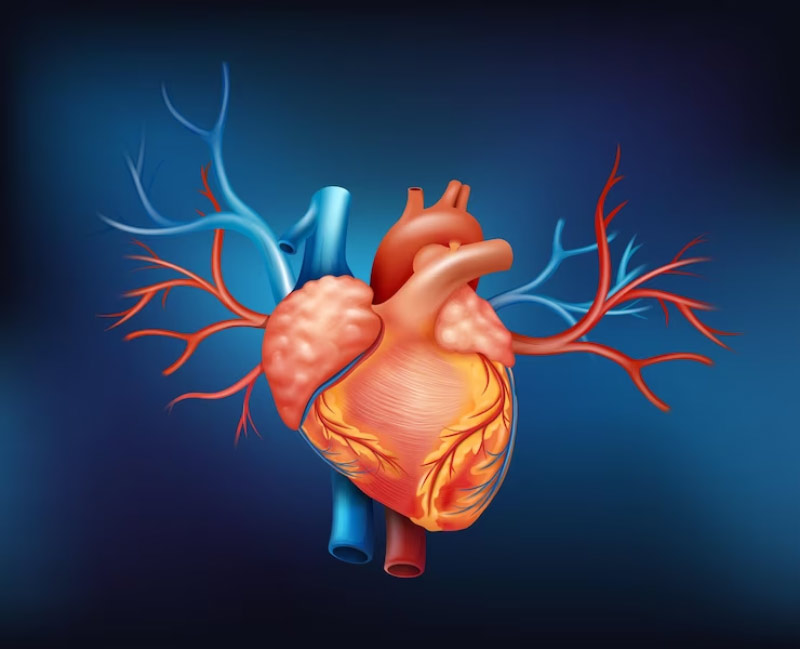

Unlike the heart conditions that develop due to unhealthy lifestyle choices, such as physical inactivity, bad diet habits, smoking, alcohol consumption, and obesity, an inherited heart condition is a cardiovascular disorder that is passed down through genes from one or both parents to their offspring. This increases the risk of developing heart-related problems, including Hypertrophic Cardiomyopathy (HCM).
Speaking with the OnlyMyHealth team, Dr Mohit Bhutani, Assistant Professor-Cardiology, Amrita Hospital, Faridabad, discusses the condition in detail and explains its cause.
What Is Hypertrophic Cardiomyopathy (HCM)?

“HCM is a genetic heart condition characterised by abnormal thickening of the heart muscle wall, specifically in the left ventricle,” says Dr Bhutani, adding, “This thickening makes it harder for the heart to pump blood effectively, leading to various symptoms and potential complications.”
Also Read: Is Nosebleed A Sign Of High Blood Pressure? Here’s What You Should Know
According to the doctor, HCM is caused by mutations in genes that control heart muscle growth. Depending on the blood flow, it can either be called an obstructive hypertrophic cardiomyopathy, meaning when the thickened wall blocks the blood flow out of the heart, or nonobstructive hypertrophic cardiomyopathy, when there is no blockage.
Dr Bhutani shares that about one in 500 individuals are said to be affected by HCM worldwide. The Journal of the American College of Cardiology suggests that by extrapolation, as many as 20 million people in the world are estimated to be affected by HCM, making it far more common than the other genetic cardiovascular diseases, such as arrhythmogenic right ventricular cardiomyopathy, Marfan syndrome, and dilated cardiomyopathy.
Symptoms Of HCM

Symptoms of HCM can vary widely, ranging from mild to severe. These include:
- Shortness of breath, especially during physical activity or when lying flat
- Chest pain or discomfort, often described as a pressure or tightness in the chest
- Feeling tired or lacking energy, especially during exercise
- Sensation of rapid, fluttering, or pounding heartbeats
- Dizziness or lightheadedness, especially when standing up or changing positions
- Fainting (syncope), caused by reduced blood flow or irregular heart rhythms
- Heart murmur, which is an abnormal heart sound heard during a physical examination
- Arrhythmias or abnormal heart rhythms that may lead to palpitations, fainting, or sudden cardiac arrest
How To Diagnose The Condition
According to Dr Bhutani, diagnosis of HCM involves a combination of medical history evaluation, physical examination, ElectrocardioGram (ECG), echocardiogram, and other imaging tests.
“Genetic testing may also be recommended to identify specific gene mutations. Treatment options for HCM aim to manage symptoms, prevent complications, and reduce the risk of sudden cardiac arrest,” he adds.
Also Read: How Blood Clots Affect Your Leg: Symptoms To Watch Out For
Treatment Options

Dr Bhutani says, “Medications such as beta-blockers, calcium channel blockers, or anti-arrhythmic drugs may be prescribed to control symptoms and prevent abnormal heart rhythms. In some cases, surgical interventions like septal myectomy (removal of a portion of the thickened heart muscle) or alcohol septal ablation (injection of alcohol to shrink the thickened muscle) may be necessary.”
Further encouraging regular follow-up care, he adds by saying that monitoring is crucial for individuals with HCM to assess disease progression and adjust treatment as needed. “Lifestyle modifications such as avoiding strenuous activities and maintaining a healthy weight are also recommended,” he shares.
In conclusion, the doctor explains the importance of informing close family members about the condition, as it has a genetic component. Genetic testing and screening of family members may be recommended to identify those at risk and provide appropriate care.
اكتشاف المزيد من ينبوع المعرفة
اشترك للحصول على أحدث التدوينات المرسلة إلى بريدك الإلكتروني.
